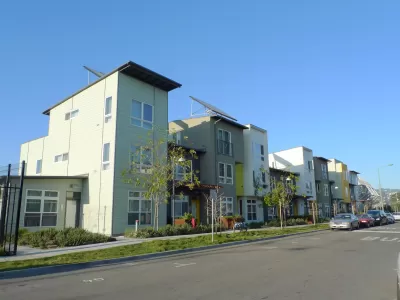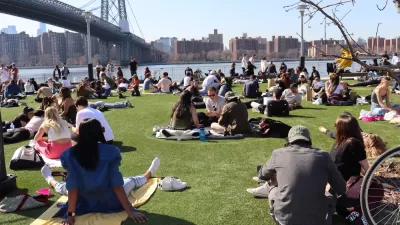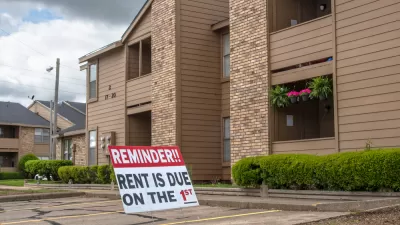Just when the nation needs a functional market for affordable housing, the industry that builds affordable housing supply has stopped functioning, like to many other parts of the economy during the COVID-19 pandemic.

Before the pandemic, the United States was short an estimated 7 million affordable housing units. That discrepancy is likely to be exacerbated by a growing number of residents in need of support and an affordable housing production industry that has ground to a halt.
"Typically, June 30 is the biggest day for affordable housing deals in New York City. It’s the end of the fiscal year, so developers race to close deals to get funding approval and get started building," according to an article by Patrick Sisson, relaying information from Rafael Cestero, president and chief executive officer of the New York-based Community Preservation Corporation.
"But this year, Cestero says, no deals closed that day — something he’s never seen in his 30 years in the business."
With so much attention paid to the eviction crisis looming over the U.S. housing market as the coronavirus infections increase around the country, lost in the discussion could be the long-term effects of the economic downturn that has followed in the pandemic's wake.
According to Sisson, "the Covid-19 crisis also stands to exacerbate the nation’s sizable affordable housing shortage, thanks to a brutal convergence of factors. Budget shortfalls mean city and state programs to subsidize housing have been gutted, or may be cut, across the nation, in Salt Lake City, Los Angeles County, New York City and elsewhere. Covid construction slowdowns and materials shortages have made ongoing projects more expensive."
Sisson also speaks with Jenny Schuetz, fellow at the Brookings Institution's Metropolitan Policy Program, for more insight into the challenges facing the affordable housing production industry. Schuetz says, "Anything that could make it unattractive or difficult to build affordable housing is happening right now."
FULL STORY: Covid-19 Is Killing Affordable Housing, Just as It’s Needed Most

Americans May Be Stuck — But Why?
Americans are moving a lot less than they once did, and that is a problem. While Yoni Applebaum, in his highly-publicized article Stuck, gets the reasons badly wrong, it's still important to ask: why are we moving so much less than before?

Using Old Oil and Gas Wells for Green Energy Storage
Penn State researchers have found that repurposing abandoned oil and gas wells for geothermal-assisted compressed-air energy storage can boost efficiency, reduce environmental risks, and support clean energy and job transitions.

Placekeeping: Setting a New Precedent for City Planners
How a preservation-based approach to redevelopment and urban design can prevent displacement and honor legacy communities.

San Francisco’s Muni Ridership Grew in 2024
The system saw its highest ridership since before the Covid-19 pandemic, but faces a severe budget shortage in the coming year.

Colorado Lawmakers Move to Protect BRT Funding
In the face of potential federal funding cuts, CDOT leaders reasserted their commitment to planned bus rapid transit projects.

Safe Streets Funding in Jeopardy
The Trump administration is specifically targeting bike infrastructure and other road safety projects in its funding cuts.
Urban Design for Planners 1: Software Tools
This six-course series explores essential urban design concepts using open source software and equips planners with the tools they need to participate fully in the urban design process.
Planning for Universal Design
Learn the tools for implementing Universal Design in planning regulations.
Heyer Gruel & Associates PA
City of Moreno Valley
Institute for Housing and Urban Development Studies (IHS)
City of Grandview
Harvard GSD Executive Education
Salt Lake City
NYU Wagner Graduate School of Public Service
City of Cambridge, Maryland





























